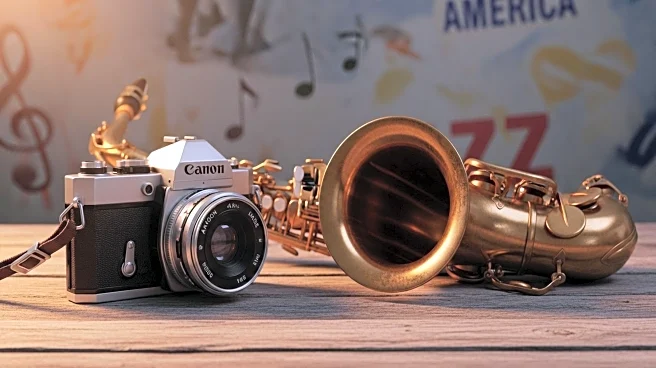What is the story about?
What's Happening?
Lisette Model, a Viennese Jewish émigré and renowned street photographer, embarked on a project in the early 1950s to capture the essence of jazz in America through photography. Her aim was to create a book of jazz pictures, accompanied by an essay from Langston Hughes. However, the project faced challenges due to suspicions about Model's leftist political views, leading to investigations by the FBI and Senator Joseph McCarthy. Despite these obstacles, Model amassed approximately 1,800 negatives from her jazz project, many of which were never printed. Her work captured the joy and wariness of jazz musicians, reflecting the complex identity of America during that era.
Why It's Important?
Model's jazz photography project highlights the intersection of art, politics, and social issues in mid-20th century America. Her images not only document the vibrant culture of jazz but also underscore the racial and political tensions faced by musicians. The project serves as a historical record of the struggles and triumphs of jazz artists, many of whom faced racism and violence despite their contributions to American culture. Model's work offers insight into the broader societal challenges of the time, illustrating how art can both reflect and challenge prevailing narratives.
What's Next?
The legacy of Lisette Model's jazz photography continues to influence contemporary discussions on art and social justice. Her work is being revisited in new publications, providing an opportunity for renewed appreciation and analysis of her contributions. As interest in historical photography grows, Model's images may inspire further exploration of the cultural and political dynamics of the jazz era, potentially leading to exhibitions or academic studies that delve deeper into the themes she captured.
Beyond the Headlines
Model's project raises questions about the role of art in political discourse and the impact of government scrutiny on creative expression. Her experience reflects broader issues of censorship and the challenges faced by artists in politically charged environments. The ethical implications of documenting marginalized communities, as well as the responsibility of artists to represent their subjects authentically, are enduring topics of debate that Model's work continues to evoke.















